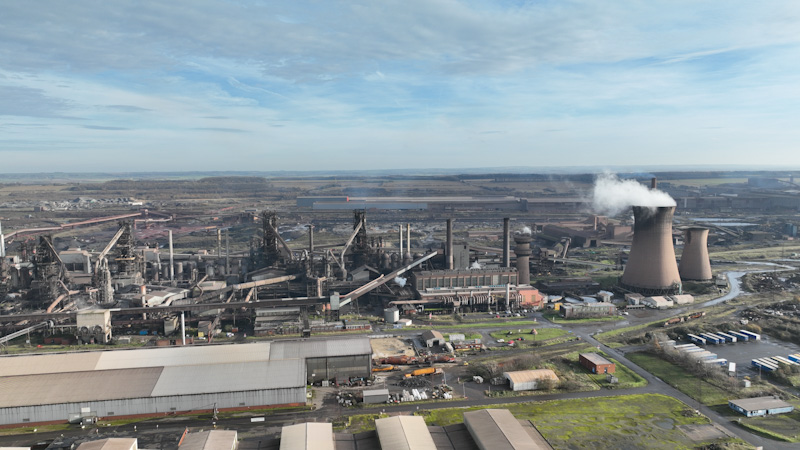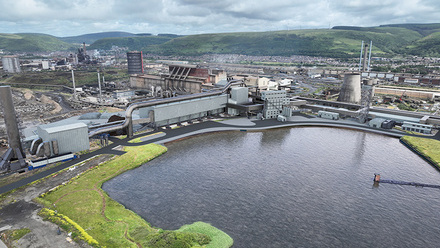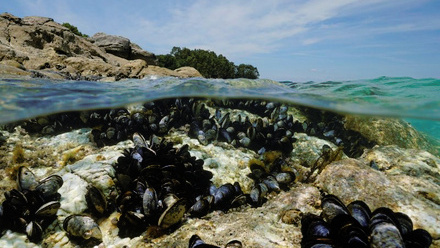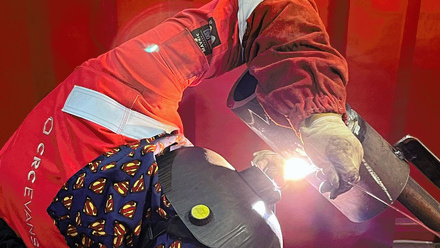British Steel to consult on proposed Scunthorpe blast furnace closures
The closures would affect two blast furnaces, steelmaking operations and a reduction in steel rolling-mill capacity.

Scunthorpe steelworks is the UK's last remaining primary steelmaking facility.
Since 2020, the shareholder of British Steel, Jingye, has invested more than £1.2bln to maintain operations amid ongoing production instability and significant financial losses of around £700k a day.
Investments to date include over £300mln in strategic capital projects, such as a mast service centre in Skinningrove, a rail stocking facility and a new billet caster.
British Steel states that, despite this, the blast furnaces and steelmaking operations are no longer financially sustainable due to 'highly challenging' market conditions, the imposition of tariffs, and higher environmental costs relating to the production of high-carbon steel.
The company has reached no agreement for support from the UK Government for a major capital investment in two new electric arc furnaces (EAF), following many months of negotiations.
The body states this has meant they decided to consult with employees and consider proposals to close the blast furnaces and steelmaking operations and reduce rolling mill capacity.
From 27 March onwards, the company will begin formal consultation with its workforce and unions. The proposals are:
- Closure of the blast furnaces, steelmaking operations and Scunthorpe Rod Mill by early June 2025.
- Closure of the blast furnaces and steelmaking operations in September 2025.
- Closure of the blast furnaces and steelmaking operations at a future point beyond September 2025.
British Steel states they will continue to work with the UK Government to explore options for the future of the business.
Unions Community, GMB and Unite are calling on the government to do everything possible to secure the future of steelmaking in Scunthorpe following the announcement.
The steel unions have – in partnership with industry experts Syndex – published a report setting out an alternative pathway towards decarbonisation at British Steel, which would involve the continued operation of Scunthorpe's two existing blast furnaces while two new electric arc furnaces (EAFs) are constructed onsite.
The plan would require an additional £200mln of UK Government support to mitigate carbon costs in the interim period.
British Steel CEO, Mr Zengwei An, says, ‘We understand this is an extremely difficult day for our staff, their families, and everyone associated with British Steel.
‘But we believe this is a necessary decision given the hugely challenging circumstances the business faces.’
Unite general secretary Sharon Graham, says, ‘This announcement of job losses is quite simply a disgrace. British Steel is guilty of trying to hold the government to ransom, while using its dedicated workforce as pawns.
'In discussions with Unite, the government has clearly moved and has made an offer to invest heavily in British Steel (Jingye). This offer comes with long-term job guarantees, anything less would be a complete misuse of taxpayers’ money. British steel now needs to make the necessary commitments.
'British Steel must now withdraw its job threats and work with the government and Unite on a sustainable way forward which is in the best interests of the workers, their communities and the wider economy.’
Community General Secretary Roy Rickhuss CBE, adds, 'Given that we are now on the cusp of becoming the only G7 country without domestic primary steelmaking capacity, it is no exaggeration to say that our national security is gravely threatened. This would be catastrophic at any time, let alone in the current era of geopolitical instability and volatility. Steel is an essential component of defensive infrastructure, just as it is to wider plans to invest in growth across the country.’












